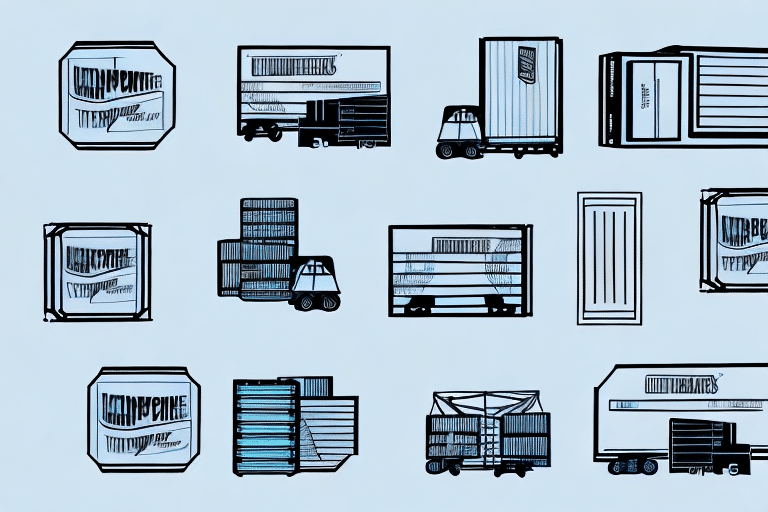Understanding Freight Payment Solutions
Shipping goods across the globe involves navigating a complex landscape of carriers, transportation modes, and varying costs. Freight payment solutions play a crucial role in streamlining these processes, enabling shippers to save time, reduce costs, and enhance operational efficiency. This guide delves into the intricacies of freight payment solutions, highlighting their benefits, the challenges they address, and how to select the ideal provider for your business needs.
Types of Freight Payment Solutions
Freight payment solutions come in various forms, each tailored to meet specific shipping and financial management needs. The primary types include:
- Fully Managed Solutions: In this model, a third-party logistics (3PL) provider handles the entire payment process on behalf of the shipper, ensuring accuracy and efficiency.
- Self-Managed Solutions: Shippers retain control over the payment process, utilizing software tools to manage invoices, payments, and financial reporting internally.
- Hybrid Solutions: Combining elements of both managed and self-managed approaches, hybrid solutions offer flexibility while outsourcing certain aspects of payment management.
- Audit and Pay Solutions: These involve third-party providers auditing freight invoices for accuracy before processing payments, ideal for shippers seeking to outsource payment while maintaining oversight.
Additionally, specialized solutions cater to specific industries like healthcare and retail, addressing unique compliance requirements and transaction volumes.
Benefits of Implementing Freight Payment Solutions
Adopting freight payment solutions offers a multitude of advantages that can significantly enhance a shipper's operations:
- Cost Savings: Automation reduces manual errors and administrative overhead, leading to substantial cost reductions.
- Efficiency Gains: Streamlined processes accelerate payment cycles and improve cash flow management.
- Enhanced Data Management: Centralized systems provide comprehensive insights into shipping expenses, enabling better financial forecasting and budgeting.
- Improved Service Levels: Timely and accurate payments foster stronger relationships with carriers, ensuring reliable service delivery.
- Regulatory Compliance: Automated systems ensure adherence to local and international regulations, minimizing the risk of fines and legal issues.
According to a Forbes report, businesses that implement automated freight payment systems can reduce operational costs by up to 30% while improving payment accuracy.
Overcoming Common Challenges in Freight Payment
Despite their benefits, shippers often encounter challenges when managing freight payments:
- Standardization Issues: Diverse invoicing procedures across carriers can complicate payment processing.
- Visibility Limitations: Lack of transparency in carrier contracts and pricing models can lead to inefficiencies.
- Error Risks: Manual data entry increases the likelihood of discrepancies and payment delays.
Freight payment solutions address these challenges by standardizing invoicing processes, enhancing data visibility, and automating error detection. Implementing automated audit and verification processes further mitigates risks associated with invoice discrepancies.
Key Features and Selecting a Provider
Choosing the right freight payment solution provider is pivotal for maximizing benefits. Key features to consider include:
- Automation Capabilities: Look for solutions that offer comprehensive automation of invoice processing, payment matching, and reconciliation.
- Integration Flexibility: Ensure the solution can seamlessly integrate with existing Transportation Management Systems (TMS) and other enterprise software.
- Security Measures: Advanced security features are essential to protect sensitive financial and shipping data.
- Customizability: The ability to tailor the solution to specific business needs, such as handling multiple currencies or complex billing structures.
- Reporting and Analytics: Robust analytics tools help in tracking performance metrics and identifying cost-saving opportunities.
- Customer Support: Reliable support services are crucial for smooth implementation and ongoing management.
When evaluating providers, consider their industry reputation, client testimonials, and the breadth of their service offerings. A provider with a proven track record and strong customer support is more likely to deliver a high-quality solution.
Integration with Transportation Management Systems (TMS)
Integrating freight payment solutions with your existing TMS can significantly enhance operational efficiency. Key benefits include:
- Seamless Data Flow: Automated data exchange between systems eliminates manual input, reducing errors and saving time.
- Enhanced Visibility: Unified platforms provide a comprehensive view of transportation activities, facilitating better decision-making.
- Improved Forecasting: Integrated systems offer advanced forecasting capabilities, aiding in strategic planning and budgeting.
Successful integration depends on factors such as the compatibility of systems, the level of customization required, and the complexity of the data involved. Collaborating with a provider that offers robust integration support can ensure a smooth and effective implementation.
Case Studies of Successful Implementations
Many leading companies have realized significant benefits by implementing freight payment solutions:
- Large Manufacturer: A multinational manufacturer adopted a fully managed freight payment solution, achieving a 20% reduction in freight costs and enhanced invoice accuracy.
- National Retailer: Implementing a self-managed solution enabled a major retailer to expedite payment processing times by 35%, while gaining greater financial visibility and control.
These case studies highlight the tangible improvements in cost efficiency, operational accuracy, and financial transparency that freight payment solutions can deliver across various industries.
Future Trends in Freight Payment Technology
The freight payment landscape is evolving with advancements in technology. Key trends to watch include:
- Artificial Intelligence and Machine Learning: AI-driven analytics will offer deeper insights and predictive capabilities, enabling more strategic decision-making.
- Blockchain Technology: Blockchain promises enhanced security and transparency in transactions, reducing disputes and fraud.
- Real-Time Data Analytics: Enhanced real-time analytics will provide up-to-the-minute insights into shipping and payment processes.
- Mobile Integration: Mobile-friendly solutions will offer greater accessibility and flexibility for managing payments on the go.
- Interoperability: Improved interoperability with other supply chain systems will facilitate more cohesive and efficient operations.
Staying abreast of these trends can help shippers leverage emerging technologies to further optimize their freight payment processes and maintain a competitive edge in the industry.
Conclusion
Freight payment solutions are indispensable tools for modern shippers, offering enhanced control, visibility, and efficiency in managing complex payment processes. By selecting the right provider and leveraging advanced features, businesses can achieve significant cost savings, improve operational accuracy, and foster stronger relationships with carriers. As technology continues to advance, staying informed about emerging trends will ensure that shippers can adapt and thrive in an ever-evolving logistics landscape.




















